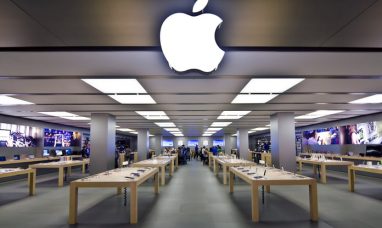The proposed $20 billion merger between Kroger (NYSE:KR) and Albertsons (NYSE:ACI), two of the largest grocery chains in the United States, has reached a pivotal moment as the Federal Trade Commission intensifies its efforts to block the deal. The FTC’s antitrust enforcers, who have already landed significant blows in the early stages of the court proceedings, are seeking to persuade an Oregon federal judge to issue an injunction that would prevent the companies from completing the merger.
FTC’s Case Against the Kroger-Albertsons Merger
The FTC argues that the Kroger-Albertsons merger would harm consumers by reducing competition in the grocery sector, leading to higher prices. The agency’s expert witnesses are expected to testify this week, emphasizing the potential for grocery prices to rise if the two companies, which are currently the last traditional grocery operators competing head-to-head in many U.S. markets, combine forces.
A key component of Kroger and Albertsons’ defense is their plan to sell over 500 stores to C&S Wholesale Grocers, a New Hampshire-based company, to mitigate concerns about reduced competition. However, FTC lawyers have cast doubt on C&S’s ability to effectively compete in the market, noting the significant challenges the company would face in establishing new brands, technology systems, and supply chains at the 579 stores it would acquire.
C&S Wholesale Grocers Under Scrutiny
The FTC has raised concerns about C&S’s readiness to take on the responsibility of running the stores it would acquire from the merger. Testimony revealed that C&S would need to rebrand over 100 Safeway stores in Oregon and Washington, a move that could lead to a 22% drop in sales at those locations. C&S executives have acknowledged some of the complexities involved in the deal, with internal communications introduced by the FTC showing doubts about the quality of the stores Kroger plans to offload.
Adding to the skepticism, there are questions about whether C&S intends to operate the stores for the long term or simply use the acquisition to boost its wholesale business, which lost its largest grocery customer in 2019. This uncertainty has fueled the FTC’s argument that the sale of these stores may not be sufficient to maintain competitive markets.
Historical Precedents and Market Impact
The FTC’s case against the Kroger-Albertsons merger draws parallels to a previous megamerger involving Albertsons. In 2015, the FTC allowed Albertsons to acquire Safeway on the condition that it sell 146 stores to Haggen, a small West Coast grocery chain. However, Haggen went bankrupt just eight months later, leading to the closure of 83 stores. The failure of that deal has left lingering concerns among Albertsons employees and is a key point in the FTC’s argument against the current merger.
If the merger is allowed to proceed, the FTC warns that Kroger would have the ability to raise prices in many markets, contrary to Kroger’s claim that the deal would result in $1 billion in price reductions. Kroger’s CEO, Rodney McMullen, and Albertsons’ CEO, Vivek Sankaran, are expected to testify this week, defending the merger as a necessary step to compete with larger retailers like Walmart (NYSE:WMT) and newer entrants like Aldi, Lidl, and Costco (NASDAQ:COST).
The Stakes for Consumers and the Grocery Industry
The outcome of this trial will have significant implications for the U.S. grocery industry and consumers. The Portland courthouse, rarely the site of major antitrust cases, has become the focal point for one of the most important merger lawsuits in recent years. While the proceedings have yet to capture widespread public attention, the stakes are high, as the decision could reshape the competitive landscape of the grocery sector.
For many shoppers, especially those in areas where Kroger and Albertsons are major players, the merger could lead to changes in the availability and pricing of groceries. In Portland, where both Kroger and Albertsons have a strong presence, the potential rebranding of stores and shifts in competition could have a direct impact on local consumers.
Conclusion: The Future of the Kroger-Albertsons Merger
As the trial enters a critical phase, the fate of the Kroger-Albertsons merger hangs in the balance. The FTC’s arguments and the companies’ defense will determine whether the merger proceeds or is blocked. For now, the focus remains on whether the proposed remedies will be enough to alleviate antitrust concerns or if the merger will ultimately be halted, leaving the grocery giants to chart a different course in an increasingly competitive market.
Featured Image: Freepik















